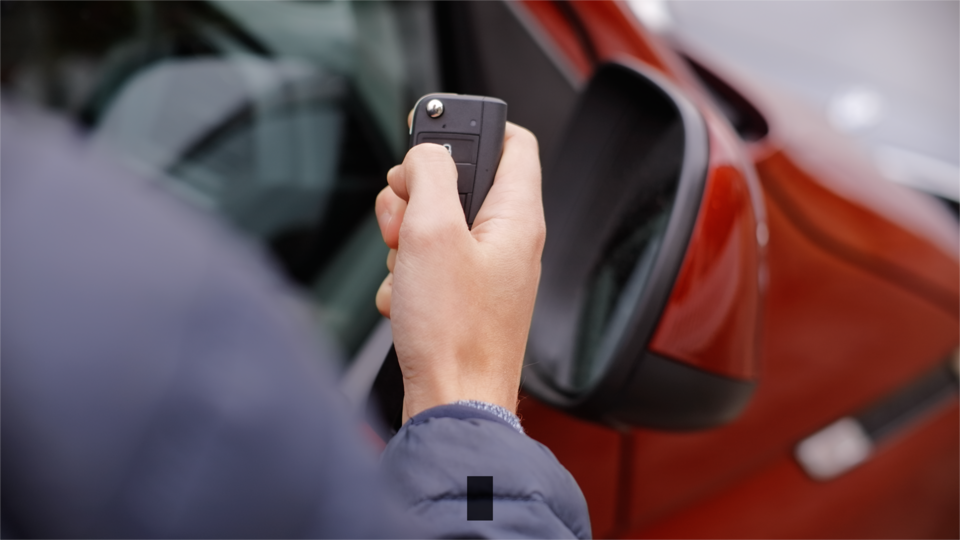Theft of – and from – vans continues to be a significant problem in the UK, with latest estimates suggesting a light commercial vehicle is broken into or stolen every 12 minutes.
This can have a significant impact on an organisation, because as well as the cost of replacing the stolen equipment and repairing the damage to the van, it affects their operations as employees are not able to carry out their duties, adding disruption and further costs.
Vanarama found the number of LCV thefts increased significantly during 2023, a jump of 18% compared to 2022 for a total of 12,950, while as many as four in five van users has become a statistic with a claimed 78% of tradespersons having had their working life disrupted.
In fact, despite an estimated 60% of van users taking additional steps to secure their vehicles, the endemic is so bad that a Stop Tool Theft campaign is being supplemented and supported by a Government White Paper.
A private members bill from MP Greg Smith has now been passed and an act and it is this act that industry is seeking to have extended to power tools, Equipment Theft (Prevention) Act 2023 - Parliamentary Bills - UK Parliament.
Earlier this year organisation Trades United arranged a protest, attended by 300 tradespeople, in London calling for tougher enforcement of the law to prevent the theft and resale of stolen tools.
“As LCVs continue to increase in demand, it’s imperative to take measures for better security and to protect your van from thieves,” says Matt Dillon, head of commercial vehicles at Ayvens.
Theft of – and from – vans continues to be a significant problem in the UK, with latest estimates suggesting a light commercial vehicle is broken into or stolen every 12 minutes.
This can have a significant impact on an organisation, because as well as the cost of replacing the stolen equipment and repairing the damage to the van, it affects their operations as employees are not able to carry out their duties, adding disruption and further costs.
Vanarama found the number of LCV thefts increased significantly during 2023, a jump of 18% compared to 2022 for a total of 12,950, while as many as four in five van users has become a statistic with a claimed 78% of tradespersons having had their working life disrupted.
In fact, despite an estimated 60% of van users taking additional steps to secure their vehicles, the endemic is so bad that a Stop Tool Theft campaign is being supplemented and supported by a Government White Paper.
A private members bill from MP Greg Smith has now been passed and an act and it is this act that industry is seeking to have extended to power tools, Equipment Theft (Prevention) Act 2023 - Parliamentary Bills - UK Parliament.
Earlier this year organisation Trades United arranged a protest, attended by 300 tradespeople, in London calling for tougher enforcement of the law to prevent the theft and resale of stolen tools.
“As LCVs continue to increase in demand, it’s imperative to take measures for better security and to protect your van from thieves,” says Matt Dillon, head of commercial vehicles at Ayvens.
“It’s important that drivers also understand they have a responsibility to keep their vehicles safe – a toolbox talk on preventing van thefts can help.”
Advice could include parking in well-lit places with CCTV, ensuring the vehicle is locked, and leaving nothing on show.
Do not think that just having a sticker saying ‘No tools left inside this vehicle overnight’ does the job – that’s like having a “beware of the dog’ sticker says Protect A Van – and just as ineffective.
Supermarket car parks in broad daylight have become a prime hunting ground for thieves because drivers – invariably just popping in for a quick sandwich and coffee – become lax securing their vehicles, says leading security experts TVL.
Anti-theft systems
The vehicle manufacturers are doing their bit to deter break-ins although the harder they make it, the more damage to the vehicle is invariably the result.
Ford, for example, offers an optional (£325) dedicated anti-theft system for its new Transit. Called Delivery Assist, the pack is aimed at courier companies and delivery drivers making frequent stops. It automatically activates the hazard lights and closes the windows before locking the van but upon return, it reverts to the settings as before.
There is also a myriad of aftermarket anti-theft option available to van operators from companies such as TVL and Protect A Van.
The most popular picks include a highly-visible steering lock and what is known as ‘latch shields’ which are essentially highly-visible metal plates which prevent thieves from piercing the skins (using something no more elaborate than hammer and screwdriver) on side and rear doors to ‘trip’ the lock mechanisms.
Protect A Van goes one better with its line-up by having an inner plate made from manganese which is impervious to cutting or drilling without specialist equipment.
Loom guards at £48.50+VAT must rank as one of the most cost-effective deterrent – so much so that it makes you wonder why they are not fitted on the production line.
Encasing the loom at strategic points, their job is to stop the wires being sliced through in an effort to disarm the central locking plus preventing unnecessary repairs.
Other devices include automatic slam locks as well as a range of additional highly visible high security locks.
Locks4Vans says its range of Hook Locks, which are independent to the central locking system, is the Kent-based company’s best seller, but has just launched an industry first; the only insurance-backed 2-1 Thatcham-certified aftermarket van alarm system dedicated to LCVs but which also protects canopies fitted to pick-ups.
Locks4Vans says the problem with standard factory-fit alarms is that they are essentially adaptations of traditional car alarms that are not designed to accommodate the specific needs of LCV operators. There was, the company concluded, “a need for a system that could be tailored to these demands and to each van make and model”.
The L4V replaces the CAN-Bus original factory-installed system, but which is ineffective to the craze of piercing the side and rear doors to overcome the lock mechanisms.
Priced at £794+VAT fitted, Lock4Vans says initial response has been extremely good and is designed to offer complete cab and load area protection that can be customised to suit individual or fleet security needs, including ‘multi-brand, multi-vehicle fleets’.
Whether or not van makers will embrace the alarm as a factory-fit option is uncertain but already Ford has become the first to include controls within its user app.
Beware of ‘weeding’
If a vehicle is stolen, fleets should be aware of ‘weeding’. This is the police term for short-term vehicle theft. When a stolen vehicle is reported to the police, a (LoS) marker is placed against a vehicle registration mark (VRM) that must be manually confirmed by the constabulary in question within six weeks.
If not, the listing will be automatically removed – weeded in other words – with any further checks returning a ‘not stolen’ status.
However, due to increased pressure piling on already-stretched police resources, far too many are slipping the net as a result, says Philip Swift, technical director at motor insurance loss adjuster Claims Management & Adjusting (CMA).
“This archaic process has always caused problems, but we are seeing a dramatic increase in six-week weeding errors. We have raised it with the National Police Chiefs Council (NPCC) and multiple constabularies.
“For starters, vehicles not recorded as stolen on the police national computer are far less likely to be recovered. They won’t get picked up by automatic number plate recognition (ANPR) cameras or spot checks. Even if reported as suspicious, a check will show ‘clear’, obviously benefiting criminals.”
Another issue is the six-year weeding process, after which VRMs are completely removed from the PNC automatically.
Vehicle crime consultant and retired head of technology at the Metropolitan Police Ken German admits it is a “weird process indeed”, but also a victim of circumstance. “Why so many are weeded is because the officer has moved on or there has been no activity on the crime report,” he adds.
“A stolen vehicle is actually on hold for seven days to see if it is still stolen or may have been recovered. The officer in charge is reminded after seven days to confirm it is still stolen. It then stays on the PNC as outstanding for seven years.
“If the officer does not confirm the vehicle is still outstanding after this time, then it gets weeded off the PNC.
“You may lose possession but not ownership. Even if it is found after six or 26 years and has had 100 owners since, you still own it but remember that once your insurance company pays out then they are the new owners and are not obliged to inform you if it is recovered.”
By Alan Anderson
Login to continue reading.
This article is premium content. To view, please register for free or sign in to read it.



















Login to comment
Comments
No comments have been made yet.